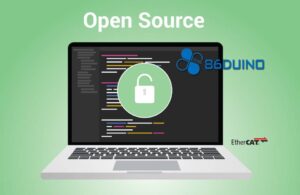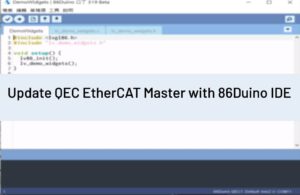[Sketch]
Description
After creating a setup() function, which initializes and sets the initial values, the loop() function does precisely what its name suggests, and loops consecutively, allowing your program to change and respond. Use it to actively control the Arduino board.
Example Code
int buttonPin = 3;
// setup initializes serial and the button pin
void setup() {
Serial.begin(9600);
pinMode(buttonPin, INPUT);
}
// loop checks the button pin each time,
// and will send serial if it is pressed
void loop() {
if (digitalRead(buttonPin) == HIGH) {
Serial.write('H');
}
else {
Serial.write('L');
}
delay(1000);
}Language Reference Home
The text of the 86Duino reference is a modification of the Arduino reference and is licensed under a Creative Commons Attribution-ShareAlike 3.0 License. Code samples in the reference are released into the public domain.



